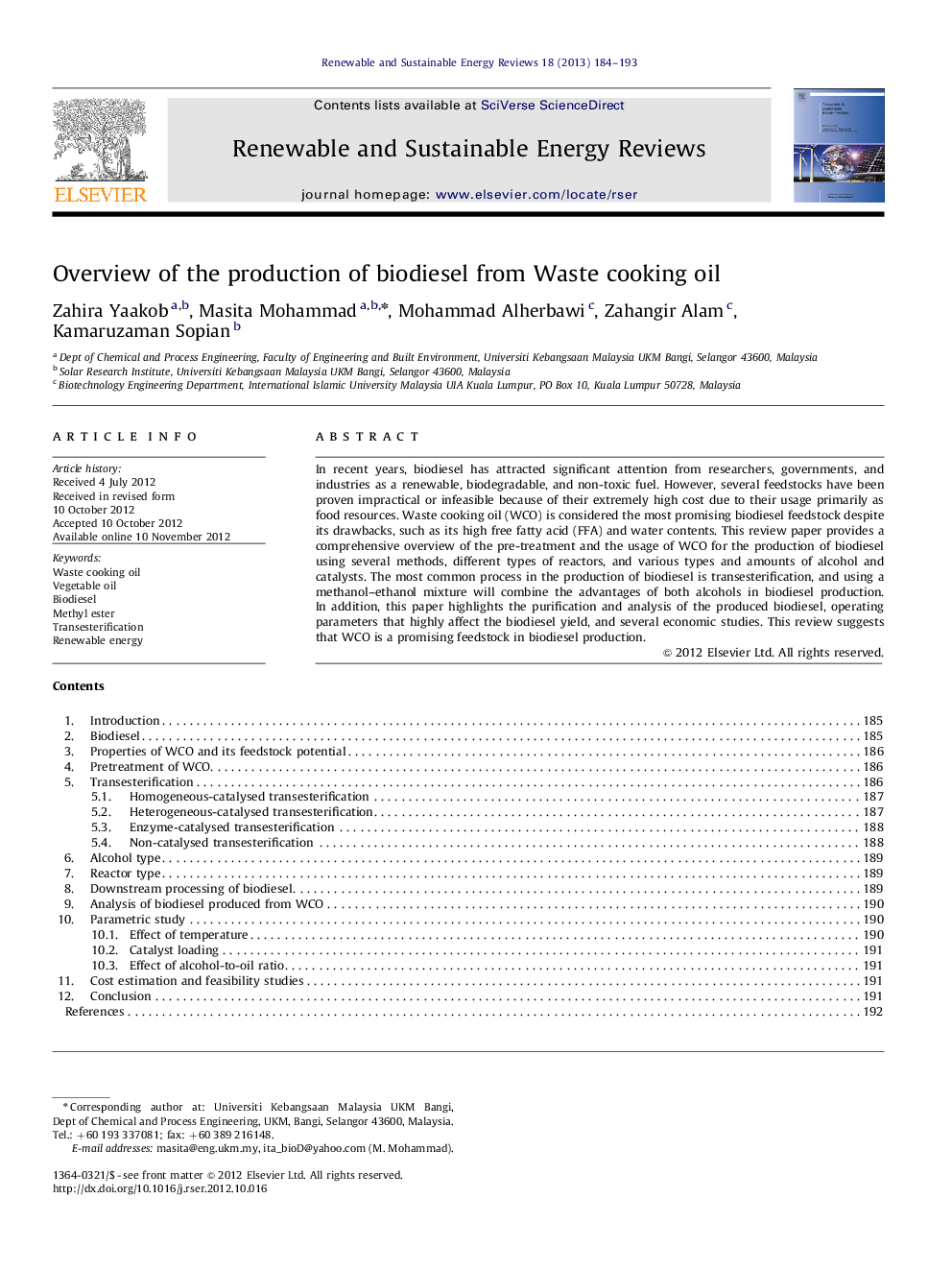| Article ID | Journal | Published Year | Pages | File Type |
|---|---|---|---|---|
| 1750701 | Renewable and Sustainable Energy Reviews | 2013 | 10 Pages |
In recent years, biodiesel has attracted significant attention from researchers, governments, and industries as a renewable, biodegradable, and non-toxic fuel. However, several feedstocks have been proven impractical or infeasible because of their extremely high cost due to their usage primarily as food resources. Waste cooking oil (WCO) is considered the most promising biodiesel feedstock despite its drawbacks, such as its high free fatty acid (FFA) and water contents. This review paper provides a comprehensive overview of the pre-treatment and the usage of WCO for the production of biodiesel using several methods, different types of reactors, and various types and amounts of alcohol and catalysts. The most common process in the production of biodiesel is transesterification, and using a methanol–ethanol mixture will combine the advantages of both alcohols in biodiesel production. In addition, this paper highlights the purification and analysis of the produced biodiesel, operating parameters that highly affect the biodiesel yield, and several economic studies. This review suggests that WCO is a promising feedstock in biodiesel production.
